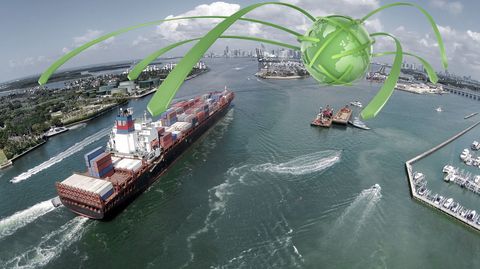In an increasingly globalized world, businesses have become more and more reliant on free trade agreements (FTAs) to make their import and export activities as profitable and hassle-free as possible.
Arguably, nowhere is this more true than in the US, which has held its position as the world's leading economy throughout the era of modern globalized business models. As such, American companies are some of the most prolific importers and exporters in the world, generating a huge amount of their revenues overseas and benefiting directly from the reduced bureaucracy and elimination of tariffs that trade deals can provide.
Recently, the US International Trade Commission (USITC) issued a report detailing the historical impact of these kinds of trade agreements, in order to show how they have evolved in the last three decades - as well as the direct economic advantages they have yielded for the US economy.
The methods
The Economic Impact of Trade Agreements Implemented Under Trade Authorities Procedures report aimed to estimate the economic impact of all trade agreements passed under trade authorities procedures since January 1st 1984.
This includes a number of key deals such as the Uruguay Round Agreements and the North American Free Trade Agreement (NAFTA), as well as bilateral or regional trade arrangements agreed between the US and Australia, Bahrain, Canada, Chile, Colombia, Costa Rica, the Dominican Republic, El Salvador, Guatemala, Honduras, Israel, Jordan, Korea, Morocco, Nicaragua, Oman, Panama, Peru and Singapore.
Analyzing the evolution of these key provisions over the last 30 years, the USITC aimed to estimate the magnitude of their impact compared to the likely economic outcomes if they had not been signed, as well as looking at how individual provisions affected specific industries through case studies.
The findings
According to the findings of the report, the USITC found that trade deals have had a measurable impact on overall economic growth, and have generally evolved to be broader, stronger and more transparent over the years.
As of 2012, it was estimated that the agreements had increased total US exports by 3.6 percent, total US imports by 2.3 percent, real GDP by 0.2 percent, total employment by 0.1 percent and real wages by 0.3 percent, while bilateral trade flows with partner countries were bolstered by 26.3 percent on average across the traded goods and services sectors.
In general, the bilateral and regional trade agreements the US has put in place have had a positive effect on merchandise trade balances with partner countries, increasing trade surpluses or reducing trade deficits by $87.5 billion (€79.11 billion) in total in 2015, as well as delivering tariff savings of up to $13.4 billion the preceding year - a significant part of which ended up directly benefiting US consumers. Some of the measures have also helped to increase the variety of products imported by the US, further underlining their impact on economic growth and diversification.
It was also found that industry-specific agreements tended to have a larger impact than deals that covered many sectors - for example, the Information Technology Agreement increased annual US exports of IT products it covered by 56.7 percent in 2010, while the Uruguay Round and NAFTA tariff reductions were credited with increasing annual US steel imports by 14.7 per cent in 2000.
The complex US relationship with free trade
The report comes at a time when the country's relationship with free trade has become more complex than at any time in recent years. At present, the US is at the forefront of negotiating two of the biggest trade deals in history - the Trans-Pacific Partnership and the Transatlantic Trade and Investment Partnership - which could revolutionize the nation's dealings with key partners in Europe and the Pacific Rim region.
At the same time, deals of this kind are facing growing public opposition due to concerns about the opaque way they are negotiated and the perception that they unduly favor big business interests. As a result, both of the frontrunners for the next US presidency - Hillary Clinton and Donald Trump - have been tentative at best about their continued support for global free trade principles.
As such, businesses worldwide will be keeping a close eye on future political developments in the country to see whether or not the favorable conditions secured for them by recent FTAs will continue. In the meantime, it could serve them well to ensure they invest in proper origin calculation and supplier solicitation software - such as the MIC OCS solution - to ensure they are able to remain legally compliant with evolving regulatory frameworks.






